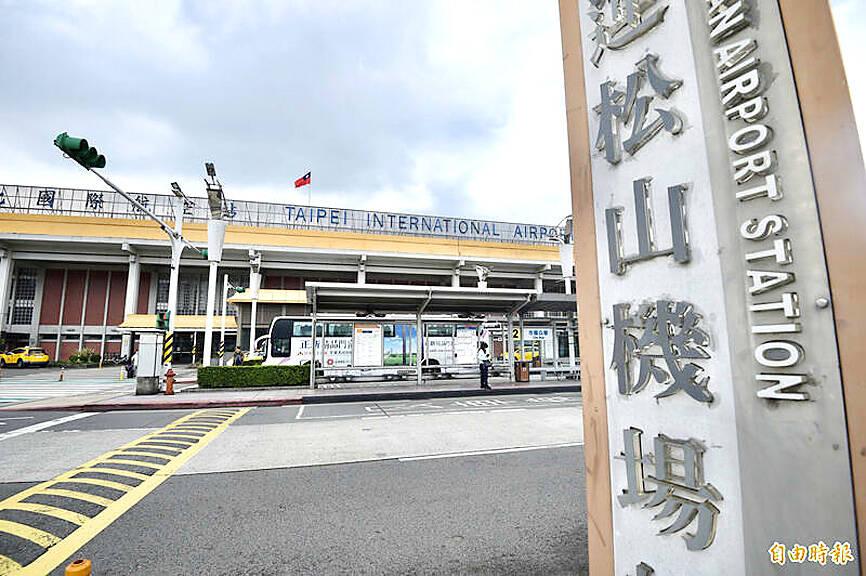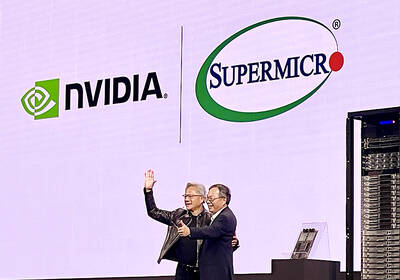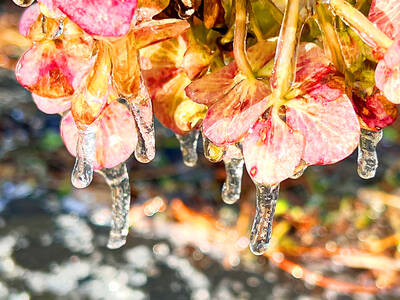Officials today reassured legislators that Taipei International Airport (Songshan airport) is safe for use, following concerns that the runway is shorter than that at the South Korean airport where a deadly plane crash occurred yesterday.
Yesterday morning, a Jeju Air Boeing 737-800 crashed in Jeju Island’s Muan International Airport, with videos showing the plane sliding across the runway before colliding with a concrete wall and bursting into flames.
All 175 passengers and four of the six crew were killed. Only two of the crew members survived.

Photo: Taipei Times
The runway in Songshan airport is even shorter than the one involved in the accident, Democratic Progressive Party Legislator Lee Kun-tse (李昆澤) told a meeting of the legislature’s Transportation Committee.
In 2004, there was a near-incident at the airport in which a plane overshot its landing and stopped just short of the runway’s edge, Lee said.
Following the near-miss in 2004, the airport installed an engineered materials arrestor system (EMAS) at the end of the runway, which is tested every two years, Taiwan Transportation and Safety Board chairman Lin Shinn-der (林信得) said.
Unlike concrete, EMAS can absorb the energy of an aircraft to slow it down without destroying it, he said, adding that it is common in urban airports around the world where space is limited.
The system’s installation and replacing perimeter walls with materials designed to be less hard has allowed the Songshan airport to accept larger aircraft, he added.
The Civil Aviation Administration is to study the South Korean incident to determine whether further improvements are needed at the Songshan airport, Lin said, adding that other international aviation authorities would be studying the incident as well.
Meanwhile, Lee said that videos of the Jeju Air accident show the plane’s landing gear failing, and raised concerns that China Airlines has 10 aircraft of the same model.
Regardless of model, the board recommends that airlines increase regular testing and routine aircraft maintenance, board executive director Lin Pei-da (林沛達) said.
Additional reporting by Reuters

TECH SECTOR: Nvidia Corp also announced its intent to build an overseas headquarters in Taiwan, with Taipei and New Taipei City each attempting to woo the US chipmaker The US-based Super Micro Computer Inc and Taiwan’s Guo Rui on Wednesday announced a joint venture to build a computation center powered only by renewable energy. After meeting with Supermicro founder Charles Liang (梁見後) and Guo Rui chairman Lin Po-wen (林博文), Premier Cho Jung-tai (卓榮泰) instructed a cross-ministry panel to be established to help promote the government’s green energy policies and facilitate efforts to obtain land for the generation of green power, Executive Yuan spokesperson Michelle Lee (李慧芝) said. Cho thanked Liang for his company’s support of the government’s 2019 Action Plan for Welcoming Overseas Taiwanese Businesses to Return to Invest in

The lowest temperature in a low-lying area recorded early yesterday morning was in Miaoli County’s Gongguan Township (公館), at 6.8°C, due to a strong cold air mass and the effect of radiative cooling, the Central Weather Administration (CWA) said. In other areas, Chiayi’s East District (東區) recorded a low of 8.2°C and Yunlin County’s Huwei Township (虎尾) recorded 8.5°C, CWA data showed. The cold air mass was at its strongest from Saturday night to the early hours of yesterday. It brought temperatures down to 9°C to 11°C in areas across the nation and the outlying Kinmen and Lienchiang (Matsu) counties,

A new board game set against the backdrop of armed conflict around Taiwan is to be released next month, amid renewed threats from Beijing, inviting players to participate in an imaginary Chinese invasion 20 years from now. China has ramped up military activity close to Taiwan in the past few years, including massing naval forces around the nation. The game, titled 2045, tasks players with navigating the troubles of war using colorful action cards and role-playing as characters involved in operations 10 days before a fictional Chinese invasion of Taiwan. That includes members of the armed forces, Chinese sleeper agents and pro-China politicians

STAY VIGILANT: When experiencing symptoms of carbon monoxide poisoning, such as dizziness or fatigue, near a water heater, open windows and doors to ventilate the area Rooftop flue water heaters should only be installed outdoors or in properly ventilated areas to prevent toxic gas from building up, the Yilan County Fire Department said, after a man in Taipei died of carbon monoxide poisoning on Monday last week. The 39-year-old man, surnamed Chen (陳), an assistant professor at Providence University in Taichung, was at his Taipei home for the holidays when the incident occurred, news reports said. He was taking a shower in the bathroom of a rooftop addition when carbon monoxide — a poisonous byproduct of combustion — leaked from a water heater installed in a poorly ventilated